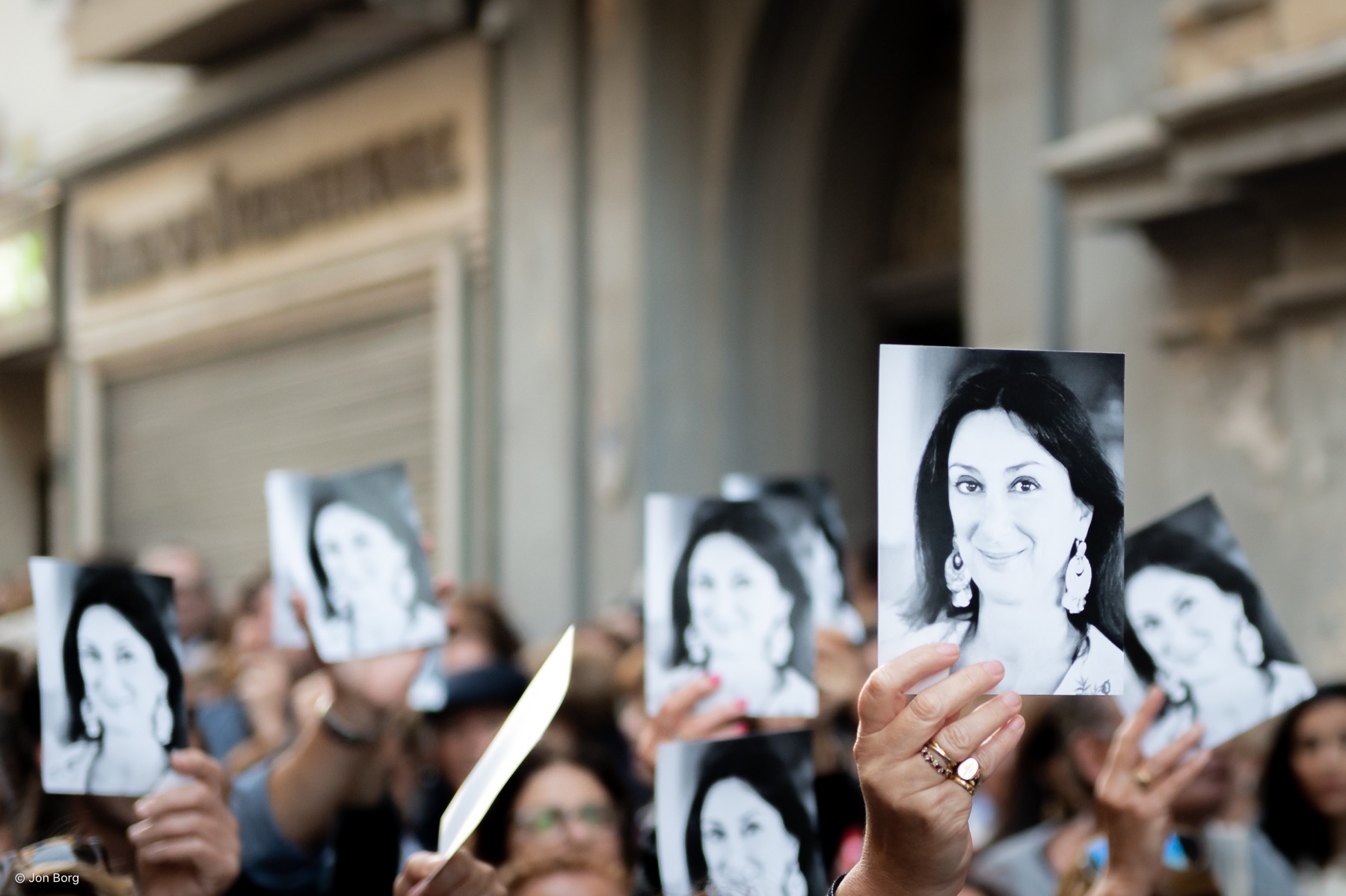
Mission
Justice, journalism and memory
Over her 30-year journalism career, Daphne Caruana Galizia feared that the sustained, increasingly violent attacks on her - which eventually led to her assassination - had frightened away others.
She said so in an interview with the Council of Europe six days before her assassination.
Impunity in her murder investigation and for the corruption on which she was reporting is having a chilling effect on free speech and emboldening abuse against journalists, and democracy and human rights defenders across the European Union.
Nine international freedom of expression, press freedom and professional journalists' organisations have condemned the continued impunity in Malta and found clear deficiencies in the ongoing criminal investigation.
It is increasingly clear that the independence, impartiality and effectiveness of the investigation into Daphne’s murder are now in grave danger, revealing systemic weaknesses in the way that journalists, and human rights and democracy defenders are supported and protected internationally.
We work to overcome these problems and achieve the following aims, both in Malta and internationally.
Ensuring the public interest of full justice for Daphne’s assassination
We'll use all legal means possible to both ensure that the assassination investigation meets international standards and to uncover who commissioned the assassination and why.
This involves working with international organisations that monitor the assassination investigations and taking corrective action where necessary.
The public inquiry instituted after a long campaign by Daphne's family, is designed to fulfill the purpose of holding to account any state agents who may be responsible for the assassination or who may have failed to adequately protect Daphne. The lessons learned from the findings of the public inquiry will help prevent more murders.
Supporting efforts to protect investigative journalists
Our close collaboration with advocacy groups and international organisations is helping to improve early-warning systems and international protection mechanisms. We encourage pre-emptive action through the systematic logging of threats and attacks.
Daphne's husband, Peter, is a lawyer with four decades of legal experience. The pairing of journalism and legal work continues to serve as a model for us. We work with lawyers to end the use of strategic lawsuits against public participation (SLAPPs) and vexatious libel suits, and to entrench the principle that, in matters of public interest, the burden of proof in libel cases filed against journalists should be on the claimant. This objective is supported by the OSCE and Maltese media.
We advocate for the introduction of specific financial or other sanctions against political and business harassers of investigative journalists, including those who abuse libel laws for the purpose. Based on Daphne's experience and the experience of other journalists, we advocate for sanctions against political parties that use the media they own or control to target independent journalists.
Ending impunity for the murder of journalists
We support efforts to achieve full justice in targeted killings of journalists. Even at this early stage, we're starting to use the work on Daphne’s murder investigation to form more robust investigative models for future cases.
From the very beginning, Daphne's family members worked with international press organisations to define the support victims’ families should receive. We'll continue to work with journalists and advocacy groups internationally to support global initiatives to end impunity in the murder of journalists.
Guardianship of Daphne's work
Daphne produced a vast amount of work during her lifetime, work that deserves to be preserved and propagated. We're working hard to create a digital archive of all significant print and online material produced by or featuring Daphne before and after her assassination, to help inform historical research into her life and the impact of her work.
Promoting a culture of public interest litigation
We want to ensure that journalists, media organisations, and victims of political discrimination, abuse of power, and state collusion in criminal activity, have access to justice.
We aim to do this by establishing and supporting a network of public interest litigation lawyers, using legal cases to force institutional reform and accountability, and exploring the use of international mechanisms to ensure democratic accountability. We are working to develop a Public Interest Litigation Network, which we hope will launch in the autumn of 2021.
Supporting independent, non-partisan media
How can we make propaganda and disinformation irrelevant? By promoting the growth and resilience of independent investigative journalists.
We're supporting partnerships with European and international counterparts, facilitating their access to funding for investigative reporting projects and legal and digital security support.
Malta has a historical problem with political party-owned or party-controlled media, a problem that is getting worse over time. Warnings are repeated year after year by experts on the matter, with the country receiving an 83 per cent risk-rating for political party control over the media from the EU's Centre for Media Pluralism and Media Freedom. We therefore work to improve the context in which journalists operate by advocating for the dismantling of political party-owned media.
